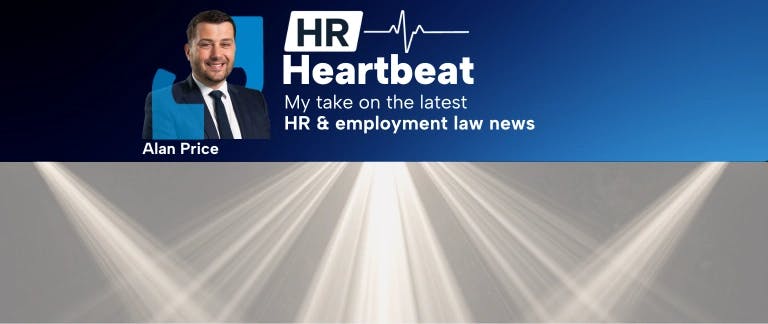First published on Thursday, October 17, 2024
Last updated on Thursday, October 17, 2024
Welcome to HR Heartbeat, where we give you a rundown of the week’s top employment law stories. Stay on the pulse of current trends impacting your business, plus get up-to-the-minute commentaries on all things HR and legal.
Government introduces Employment Rights Bill
The Government unveiled the Employment Rights Bill last week, including 28 proposed reforms to protect workers and boost productivity.
The bill proposes to eliminate the two-year waiting period for protection against unfair dismissal and grant immediate rights to paternity leave, parental leave, bereavement leave, and statutory sick pay from the first day of employment.
It also proposes to make flexible working the default from day one, unless an employer can prove this is impractical or unreasonable, and strengthens protections against dismissal for workers during pregnancy, maternity leave, and six months post-return.
A Fair Work Agency will also be introduced to enforce rights like holiday pay and universal sick pay.
The Employment Rights Bill represents dozens of huge hurdles for business owners. 28 reforms and more on the way mean substantial costs for implementing, training for, and remaining compliant with these new policies. Making use of an online HR document library with ready-to-use templates can help you save time and money when implementing these new reforms.
Employers urged to be more vigilant amidst modern slavery scandal
Following a BBC investigation into modern slavery at McDonald’s and several major supermarket chains, employers have been urged to be proactive in identifying signs of modern slavery within their workforce and taking steps to prevent it.
The investigation found that a family-run human trafficking network from the Czech Republic had been forcing 16 individuals to work at a McDonald’s and a bread factory for over four years without their employers realising it. Nine of the victims were employed at a McDonald’s in Cambridgeshire, while another nine worked for a pitta bread company supplying Asda, Co-op, M&S, Sainsbury’s, Tesco, and Waitrose.
Although the victims received at least the legal minimum wage, most of their earnings were stolen by the human traffic network, among which two of the perpetrators have now been convicted in two criminal trials.
This case has sparked urgent calls for employers to strengthen their hiring, monitoring, and reporting processes to combat modern slavery and protect vulnerable workers. Employers can take several steps to prevent modern slavery, including using reputable organisations to source staff, partnering with ethical recruitment agencies to ensure fair and transparent hiring processes, and training managers on how to spot the signs of slavery and exploitation.
For more in-depth support, consult employment law specialists to protect your business and employees.
Noise, lights, and a full-blown tribunal fight
An NHS administrator has been awarded over £27,000 after an employment tribunal found that her employers failed to make reasonable adjustments for her disability following a brain haemorrhage.
Despite multiple occupational health reports highlighting her sensitivity to noise and light, the NHS Foundation Trust failed to make adequate changes. Davies experienced significant stress and felt unsupported, leading to her resignation. The tribunal ruled that the Trust’s efforts, including a workplace assessment, were insufficient.
Employers beware; ignoring reasonable adjustments can cost you much more than just a member of your team. Always seek expert support when dealing with high-risk topics. Or, for instant answers, try our superfast AI tool Bright Brainbox: ‘Do I have to consider reasonable adjustments?’ or ‘When do I have to make reasonable adjustments?’
And that’s a wrap. Tune in next week for more headlines to make sure you stay ahead of major employment law changes!






